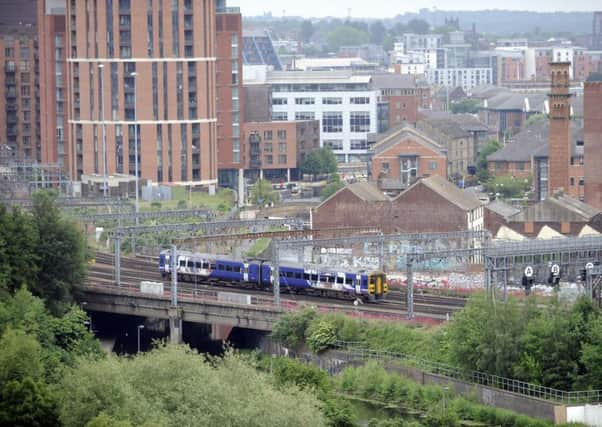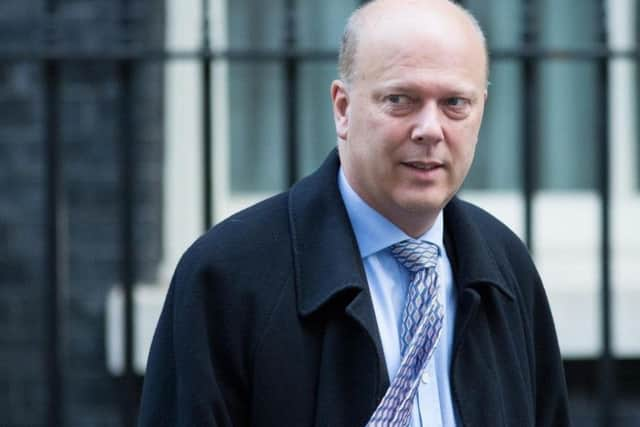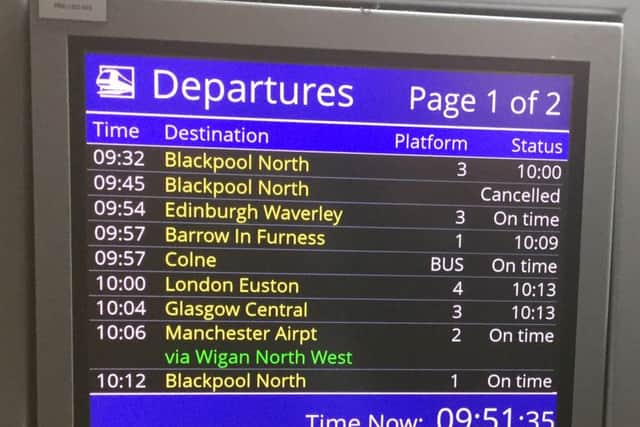Mark Casci: I don't think Leeds is unhappy, apart from the commuters that is


The latest example of this came with the announcement in my inbox this week that Leeds, the city I spend most of my time in during the working week, is home to unhappiest employees in the country.
The claim was made by the PR firm promoting The Happiness Indicator, online people analytics tool developed by The Happiness Index, coincidentally also launched this week.
Advertisement
Hide AdAdvertisement
Hide AdThis column is in no way a slight on the analytical work performed by said company, which works with Blue Chip companies in helping improve staff retention and morale.


It readily conceded that the survey upon which it had dismissed Leeds was based on the opinions of some 2,500 people nationwide, hardly a steadfast barometer for the population’s state of mind.
While I take issue with the methodology and lines of enquiry that were used to put this claim together, I could not feel that there may be some basic underlying truth to it, albeit one which could have been applied to any commercial centre across the North of England in recent weeks.
The disruption to the rail network has been dire. Northern has been rightly castigated for its high levels of cancellations and delays.
Advertisement
Hide AdAdvertisement
Hide AdHowever the problem extends beyond one rail franchise and is symptomatic of continual mismanagement of our rail network at a national level, particularly when it comes to funding and managing trains in the North.


Leeds and Manchester have drawn a lot of attention as the dominant economic bases in the region but this affects every station, large and small, and is massively prohibitive to improving and enhancing the region’s economy.
Moreover there is a human cost. Unhappy is not the right word. If you are unable to get to work on time (or even get there at all) despite paying a considerable amount of cash for the privilege then this is a scandal.
I care not for the argument that nationalising railways is the answer. I am old enough to remember British Rail. It was hardly a model of efficiency but an utter nirvana in comparison to what we have experienced across the past fortnight.
Advertisement
Hide AdAdvertisement
Hide AdWe can’t accept platitudes anymore. The optimist in me hopes this is a watershed moment and brings about the sea change in attitude towards the North that is so clearly required.


Today this newspaper and many others from across the North are formally and collectively saying enough is enough on the matter.
The World Cup gets underway next Thursday.
And while the initial tie of hosts Russia taking on Saudi Arabia may not get the pulses racing of football enthusiasts the world over, we are in for a month of regular international football.
As such the usual raft of rather silly stories are doing the rounds in terms of how to let your staff enjoy the football without impacting upon the business.
Advertisement
Hide AdAdvertisement
Hide AdIndeed one press release I received claimed almost one million workers say they will feign illness, costing employers a staggering £99,793,529 in lost hours, while three million aim to keep tabs on a live stream, racking up losses of £831,612,398 for UK plc.
Rubbish.
How about this: if you are absolutely intent on watching the football during working hours, be a grown up, work something out with your boss and take a couple of hours out.
The vast majority of workplaces now can be flexible. If there’s an imperative in terms of business needs for you to be required at work during the time in question, suck it up and get on with your job.
The lion’s share of the group stage games are outside of regular 9am to 5pm working hours. None of England’s games are during working hours.
Let’s not pretend there’s a problem here, unless you count the vulnerability of the England defence that is.